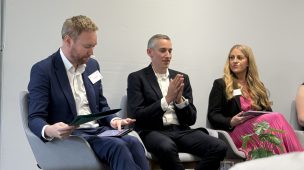Admiral and Anti-Social Data
10 November, 2016
Greg Brown was recently invited onto BBC Radio 4’s Money Box to comment on Admiral’s firstcarquote debacle. We asked Sam Gilbert, CMO of Bought By Many, an insurance distribution startup that successfully uses Facebook data to target users, to share his perspectives.
Admiral’s firstcarquote team are probably feeling pretty fed up. They did something new and clever, and came to market with a simple proposition: car insurance discounts for young drivers who were willing to share their Facebook data on a transparent opt-in basis. So why are journalists, privacy groups, and Facebook so angry with them?
I think it’s because they’ve inadvertently provided a focal point for some important contemporary anxieties:
- Disingenuous corporations. Admiral appeared to be repurposing Facebook comments for its own commercial ends in a way that was a country mile away from the Facebook user’s intended purpose. That’s antisocial.
- Intergenerational unfairness. Admiral reminded us that young people are getting a raw deal from the system – in car insurance as in employment, housing, indebtedness, et al.
- Dystopian visions. Like an episode of Black Mirror, Admiral showed us how social media has put us on a slippery slope from surveillance society to malevolent technocracy. (Note: I’m not expecting an insurtech episode of Black Mirror to be scripted any time soon).
For insurers to be able to progress with using Facebook data in pricing, underwriting, fraud, and claims models, three things have to change.
1. A positive case must be made for the use of Facebook data in insurance as a social good
The lending market is an instructive example. Absence of credit history data is a common reason why loan applications are refused – it’s known as the “thin file” problem. It’s most acute in the parts of the world where a high proportion of people are “unbanked”, and among expats who are unable to take their credit history with them across borders.
Here, there is a clear case for the use of Facebook data in decisioning loan applications as a social good, since it can improve access to credit for millions of people who are currently excluded.
By contrast, there is no social benefit in Admiral’s use of Facebook data to price car insurance – there is only commercial benefit to Admiral from cherry-picking risks. If they had found a way of (say) applying Facebook data to materially reduce car accidents involving young drivers, with higher underwriting profit as a happy by-product, firstcarquote would have been received much more positively.
2. The insurance industry must find a new way of talking about data initiatives
Awed by Silicon Valley, and egged on by providers of enterprise analytics software, insurance companies love talking about their plans for “big data” and “machine-learning algorithms”.
This is the lingua franca of insurance innovation. It plays well in conference presentations, investor updates, and the trade press; less so in the outside world.
Admiral’s press launch featured comments from firstcarquote’s “principal data scientist” – a phrase conjuring images of lab-coated boffins experimenting in subterranean bunkers, too wrapped up in the dream of inventing something “revolutionary…[and] truly transformational” to consider potentially disastrous unintended consequences.
This techno-futurist vocabulary needs to be supplanted by something more humble and humane.
3. Insurance companies need a deeper understanding of Facebook’s perspective on privacy issues
Contrary to popular belief, Facebook is serious about protecting personal data. The transparency and control Facebook provides to its users over how their data is used for targeted advertising is exemplary. (Don’t believe me? Try clicking “Why I am seeing this?” on the next Facebook Sponsored Post you see in your feed).
But Facebook is also facilitating an important conversation about the social and economic opportunities and challenges presented by its data. This conversation currently involves more academics, privacy experts, and policy people than corporate executives – but it is something insurers would be well advised to listen to before hatching their own plans.



